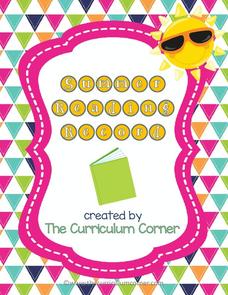Fluence Learning
Writing Informational Text: Lemonade Stand
Use a performance task to assess third graders' ability to read informational text. After they plan a lemonade stand business, young entrepreneurs implement that plan through informational writing. The task assumes learners can...
Teacher's Corner
Hey Batter, Wake Up!
Does jet lag affect a baseball team's performance in games? Read about how a baseball team's chance of winning a game can be affected by traveling over one, two, and three time zones. Readers then respond to five short answer questions...
Agriculture in the Classroom
"Steer" Toward STEM: Careers in Animal Agriculture
Think like an engineer and an agricultural scientist over the course of 12 lessons in a STEM based unit. Young scientists take on the roles of animal physiologists, animal geneticists, agricultural engineers, animal nutritionists, and...
Voice of America
Henry Ford, 1863-1947: He Revolutionized the Auto Industry
How did Henry Ford change the world? One word: automobile. After reading a two-page passage about Henry Ford's contributions to society with the invention of the automobile, readers respond to a series of 10 reading comprehension...
K5 Learning
Fire Alarm
Read about the safety of a fire alarm in a five-paragraph reading passage. After reading, pupils respond to four short answer, comprehension questions.
Curriculum Corner
Summer Reading Record
No more summer reading lag! Give young readers a set of graphic organizers and worksheets to keep track of the books they read over the summer and to keep reading comprehension skills fresh. The graphic organizers include identifying...
K5 Learning
Landforms
Valleys, mountains, and plateaus are just a few geographic landforms on our Earth. Read about these types and more in a brief landform passage. After reading, learners respond to six short answer comprehension questions.
K5 Learning
Force
Follow-up a physical science lesson with a reading passage that connects sports to force. Readers respond to six short answer questions that requires them to use the text as a basis for the answers.
K5 Learning
The Life Cycle
Studying plant, animal, or insect life cycles? Pair a science unit with a reading comprehension worksheet on life cycles. The passage touches briefly on butterfly, plant, frog, and dog life cycles before prompting readers to answer six...
Read Works
Famous Inventors — Zip it Up
Explore the invention of the zipper with a 10-question reading comprehension worksheet that challenges scholars to show what they know about an informational text's details and vocabulary.
Worksheet Web
Burrowing Animals – Ground Squirrels
Why do ground squirrels build their homes in the ground? What's so unique about these burrows? Have individuals read about this burrowing animal, and then respond to five short answer questions that assess their comprehension of the...
Scholastic
I Survived Being Bullied
Listen, or read, to a first-hand account of how 15-year old Adama survived being bullied. Scholars gain insight into Adama's experience while reinforcing reading comprehension and vocabulary skills using context clues.
Scholastic
Test-Taking Strategies for Three Subject Areas
Sometimes a test page loaded with text can make a student's face go blank. Help them decipher what a text question is asking with a series of tips focused on reading comprehension, vocabulary, and language arts mechanics.
Worksheet Web
Learning about Volcanoes
There's something about the classic volcano demonstration that can grab any learners' attention. Scholars begin with a reading and grand conversation about volcanoes, construct an erupting volcano using vinegar and baking soda, then show...
Project WET Foundation
The Water Cycle
Explore all things water cycle in a truly engaging interactive. Water enthusiasts look at water as a system. They label the parts of the water cycle as they learn about them in a hands on activity, and then participate in a game where...
Project WET Foundation
Explore Watersheds
What makes a watershed? What are the natural and human features of a watershed? How do human features affect watersheds? Where can I find my local watershed? These questions are thoroughly explained in an informative watershed interactive.
Project WET Foundation
Investigate Fresh Water
It's all about freshwater in this water interactive! Users navigate through freshwater habitats such as lakes, rivers, and wetlands, taking note of the animals that live there. They also look at a desert habitat for comparison. Learners...
Project WET Foundation
Use Water Wisely
What's the point in saving water? Surprisingly water isn't a forever resource because it is a natural resource. Here, young water conservationists hunt for 23 wise water users and water wasters by clicking on the people in the...
Project WET Foundation
Discover Our Ocean
A very informative interactive presents ocean zones, estuaries, hot water vents, phytoplankton, coral reefs, sea turtles, kelp forests, and all things that thrive in the ocean.
Project WET Foundation
We All Use Water
How many ways is water used? Indirect and direct water use are the two main ways humans use water, but the usage comes in many forms. Animals, agriculture, industries, transportation, and many more rely on water for different uses....
Project WET Foundation
The Blue Planet
What a neat interactive that interacts with the amount of water on Earth's surface. It begins with a brief audio introduction of the Blue Planet and how it got its name. Then, users click on the activity to play a game that calculates...
Project WET Foundation
Healthy Water Healthy People
People and water have something in common. They both need to be healthy. Explore with an engaging interactive what it means to have a healthy body and why having healthy water is also important.
Ancient Order of Hibernians
Who Was Saint Patrick?
Scholars discover who Saint Patrick was with help from a brief informational text followed by a series of challenge worksheets designed to boost reading comprehension and vocabulary. Class members complete a graphic organizer, take a...
Lessons on American Presidents
Abraham Lincoln
Honor Abe Lincoln with a set of activity-based worksheets that can be used independently and in collaborative groups. Young historians participate in a listening activity where they fill in the missing blanks in a passage while being...

























